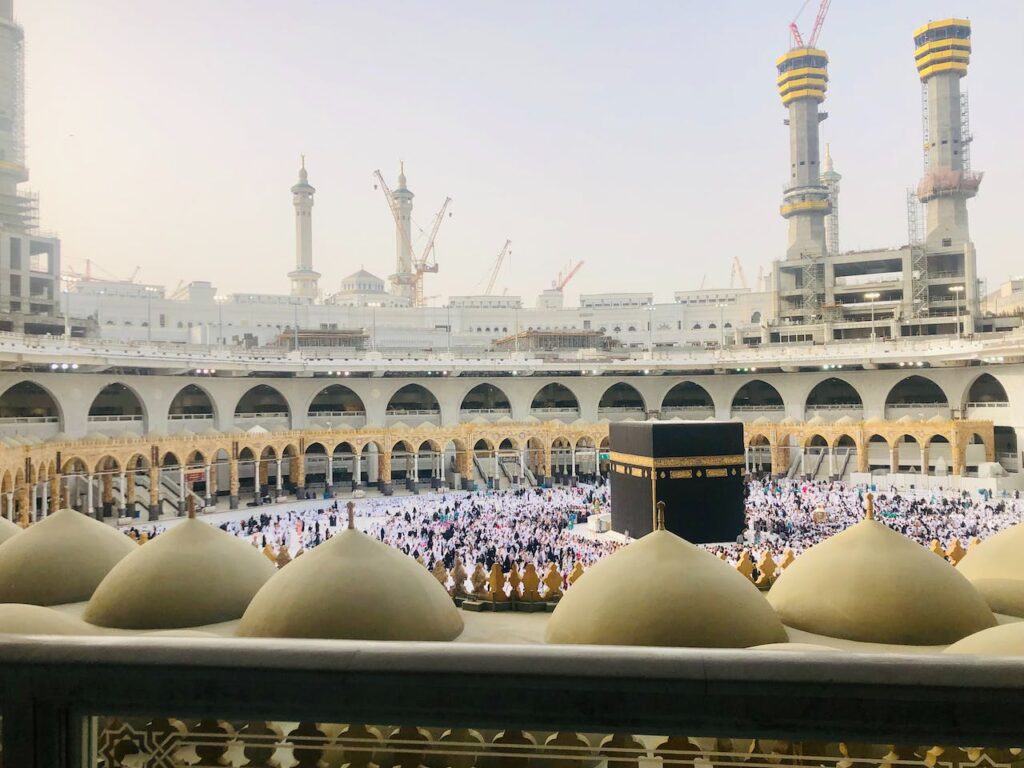Performing Umrah is a deeply spiritual and transformative journey for Muslims around the world. It is a time of devotion, reflection, and seeking closeness to Allah. For individuals with disabilities, accomplishing Umrah may require additional planning and considerations. In this article, we will explore essential tips and resources for Umrah with Disabilities that can help individuals with disabilities prepare for a meaningful and accessible Umrah experience. By embracing inclusivity and utilizing the available support services, disabled pilgrims can embark on this sacred journey with confidence and ease.
Preparing for Umrah With Disabilities
Here is how to plan for an Umrah trip for individuals with disabilities:
Firstly, Understanding Individual Needs
Every individual with a disability has unique requirements, and it’s crucial to understand those needs while preparing for Umrah. Considerations may include mobility, sensory challenges, medical conditions, or cognitive disabilities. Take the time to assess personal limitations and consult with healthcare professionals, accessibility experts, and religious advisors to develop a comprehensive understanding of specific requirements.
Secondly, Planning
Making early preparations is essential for a smooth Umrah experience. Start by contacting specialized travel agencies that cater to disabled pilgrims. These agencies have expertise in arranging accessible accommodations, transportation, and guided tours. Collaborate with them to create a customized itinerary that meets individual needs, considering factors such as wheelchair accessibility, proximity to holy sites, and availability of support staff.
Things To Consider When Preparing for Umrah With Disabilities
Another thing to consider while planning for Umrah with disabilities:
Accessible Accommodations
When booking accommodations, prioritize accessibility. Numerous hotels in Mecca and Madinah offer disability-friendly rooms with features such as wheelchair ramps, grab bars, and spacious bathrooms. Ensure that the selected hotel meets the necessary accessibility standards and is conveniently located near the Haram or the Prophet’s Mosque.
Transportation Considerations
Accessible transportation is crucial for disabled pilgrims. Seek out transportation services that provide accessible vehicles equipped with ramps or lifts. This ensures easy boarding and disembarking for wheelchair users. Additionally, confirms that transportation providers are knowledgeable about disability-specific needs and can accommodate them throughout the journey.
Assistance Services
Take advantage of assistance services available at the holy sites. The Saudi Ministry of Hajj and Umrah provides support for disabled pilgrims, including wheelchair rental, designated prayer areas, and accessible washroom facilities. Avail yourself of these services and communicate your needs to the designated personnel to ensure a comfortable and inclusive experience.
Medical Support
For individuals with medical conditions, it is vital to carry necessary medications, medical records, and contact information for healthcare professionals. Consult with your doctor before the journey to ensure optimal health and discuss any specific precautions or accommodations required during Umrah.
Utilizing Technology
In today’s digital age, technology can be a valuable resource for disabled pilgrims. Utilize mobile apps, websites, and online platforms that provide information on accessible routes, prayer timings, and audio guides for the holy sites. These tools can enhance the overall experience and help navigate the journey more effectively.
Emotional and Spiritual Preparation
Preparing for Umrah with disabilities involves not only physical arrangements but also emotional and spiritual readiness. Seek support from family, friends, and the local community to keep spirits high. Engage in spiritual practices, recite supplications, and maintain a positive mindset, knowing that the journey is a blessed opportunity regardless of any challenges faced.
Conclusion
Embarking on Umrah with disabilities requires careful planning, but it should never discourage individuals from fulfilling their spiritual aspirations. By understanding individual needs, planning, utilizing accessible accommodations and transportation, and availing of support services, disabled pilgrims can experience the profound spiritual journey of Umrah. With the right preparation, resources, and a resilient mindset, disabled individuals can partake in this sacred pilgrimage, seeking closeness to Allah and finding inspiration along the way.
In the pursuit of inclusive Umrah experiences, society as a whole must continue to advocate for improved accessibility and support services, ensuring that individuals with disabilities can perform Umrah with dignity, comfort, and equal opportunities for spiritual growth.






